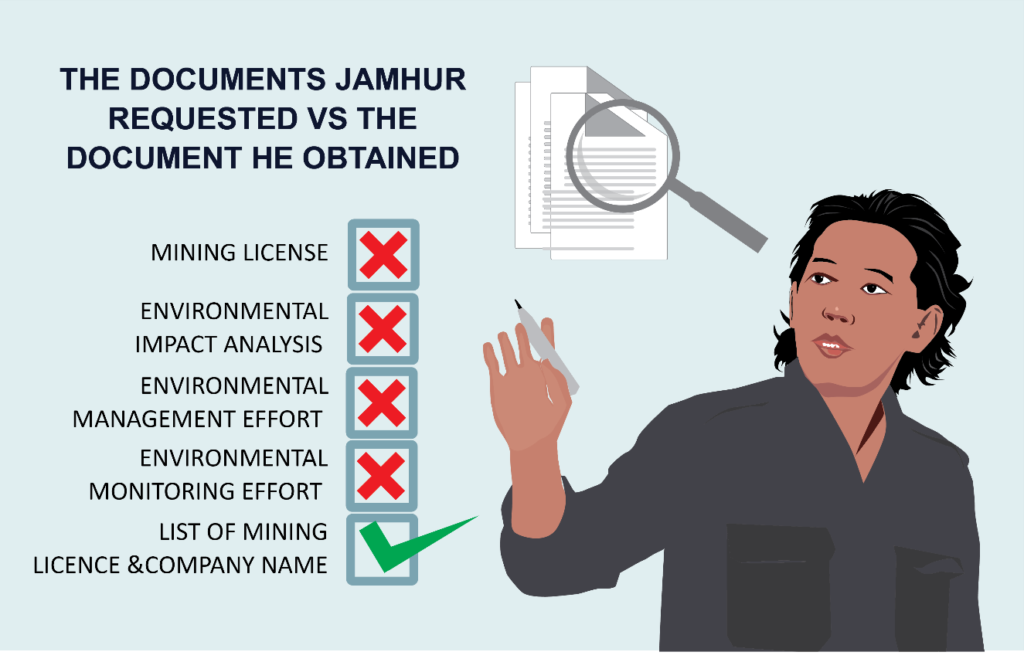Written by: Abdurrahman Wahid, Knowledge Manager SOMASI NTB
“The mining industry has been destroying the environment,” explained Jamhur about West Nusa Tenggara Province. Publish What You Pay (PWYP) Indonesia estimated that the province has at least 200 hectares of land damaged due to rock mining. Excessive sand mining is causing coastal erosion and also disrupting the activities of local fishermen. Moreover, the chemicals such as mercury and cyanide used in illegal gold mining activities have polluted the watershed and affected the health of the people living around the mining areas. Jamhur believes that accessing the mining information is the first step to restore the damaged environment.
In the last five years, there has only been one person who requested information regarding mining license in the province. His name is Jamhur, a citizen of Sekotong, West Lombok Regency. Jamhur learned his right to access public information from a training “Understanding Citizen Participation in Monitoring Mining Sector” in March 2019. The event was organised by Publish What You Pay (PWYP) Indonesia and SOMASI NTB within the Open Up Contracting program. The organizations try to increase the public participation in the sector and in accessing public information.
Following the training, he submitted a request for several documents related to mining license to the local agency with the assistance of SOMASI NTB. After waiting for seven days without receiving any respose, Jamhur sent a second letter to the Energy and Mineral Resources Agency of West Nusa Tenggara Province restating his request. As a response, the Agency reached out to Jamhur and informed him that the requested document was ready.
Unfortunately, Jamhur only received a list of company names, most of which are rock mining companies. He was advised to go to other government agencies to get the remaining documents. Jamhur followed the suggestion and went to the Environmental Agency to get the environmental impact analysis and to the One-Stop Service Agency to get the other requested mining license documents. However, like his previous experience, the related agencies only provided a list of mining company names after a period of waiting time.

Jamhur explained that accessing the mining license information and document was challenging, especially information requests coming from an individual citizen like him. Data from Information Commission of West Nusa Tenggara Province shows that there were 55 information requests in 2015. The number of requests decreased to 22 and then to only 2 in the last two years of 2018 and 2019. Mining license information was not in any of those public information requests.
Despite the lack of documents received, Jamhur’s action has inspired other citizens and communities in his village. People in Sekotong area is encouraged to have more discussion on mining issues and to access more public information. There is plan to request public information and documents related to public service delivery, village development fund, and land ownership. (AW)